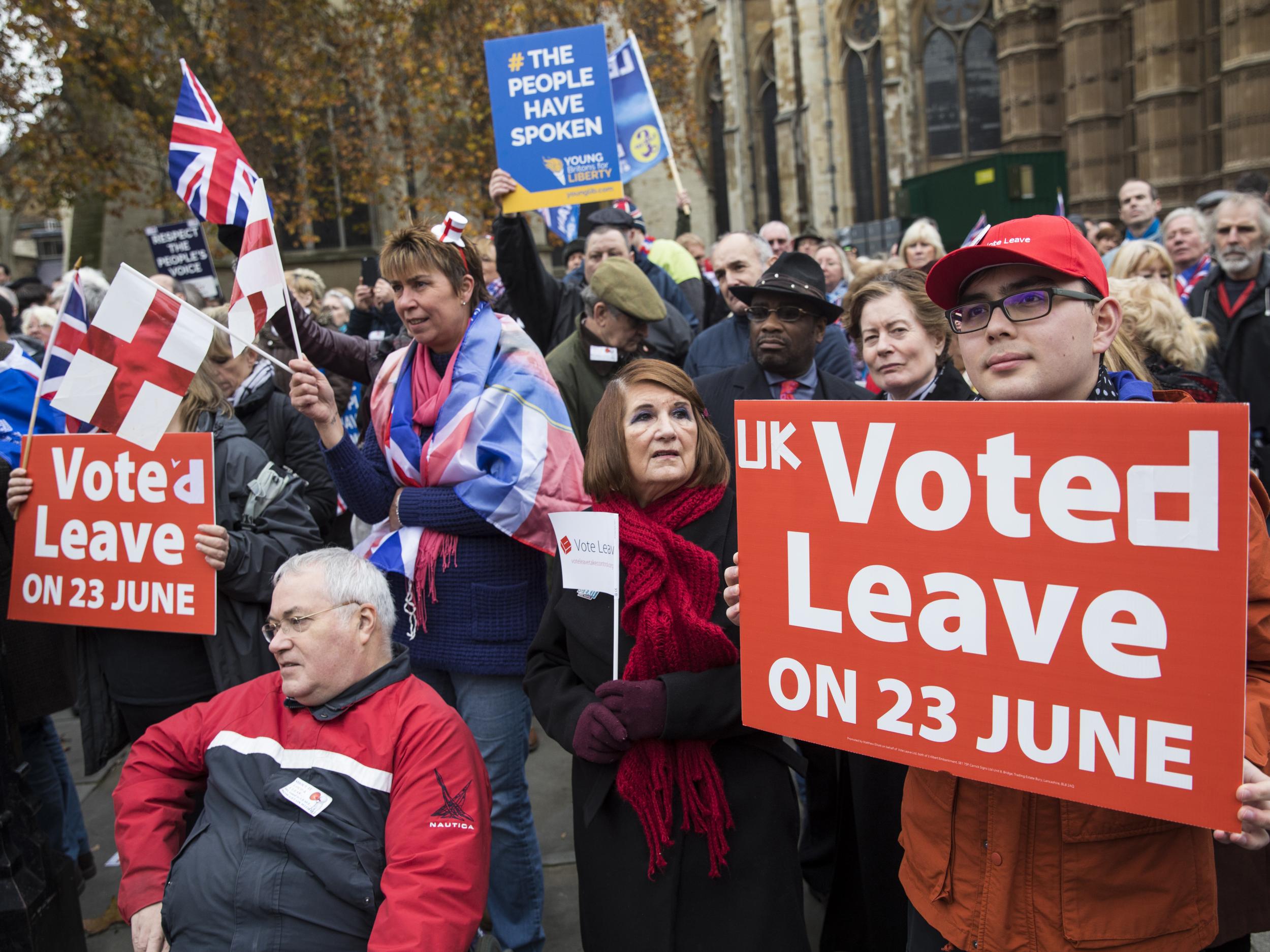The economic consensus was horribly wrong and here are the real reasons Brexit is succeeding
A former deputy director of the International Monetary Fund’s European and Research Departments, writing exclusively for The Independent, explains why the performance of the UK economy has confounded expectations since last June’s referendum and why an even bigger political prize is on offer

In the days before the vote on whether Britain should remain in the European Union, a chorus of voices warned that a decision to leave would lead to economic disaster.
At home, the warnings came from former Chancellor of Exchequer George Osborne and Bank of England Governor Mark Carney.
Abroad, grim forecasts were made by Christine Lagarde, managing director of the IMF, and by José Ángel Gurría, secretary-general of the OECD.
US President Barack Obama weighed in to declare that Britain would be sent to the “back of the queue” in negotiating a trade agreement with the United States.
After the public voted for Brexit, for Britain to leave the European Union, Carney, Lagarde, and Gurría continued to predict dire outcomes.
It is now six months since the Brexit vote, and the economic news is stunningly good. Not only did these warnings not bear out, the economy has performed much better than the expectations of even those, like me, who believed that Britain would be mildly bruised but would not be battered.
A disruption, I thought, was inevitable but it would be only temporary because the estimates of long-term costs of Brexit projected by Osborne and many academics were outlandishly high.
Loss of privileged access at low or zero tariffs to the European Union markets should reduce British trade somewhat but this will be overcome by shifting trade to the more dynamic non-European countries, a shift that has, in any case, been ongoing.
And because, therefore, long-term costs were modest, short-run uncertainties and immediate disruption, I had expected, would also be limited.
But after a brief fall right after the vote, stock markets gave a “thumbs up.”
The FTSE 100, which includes the major multinational companies and even the broader-based FTSE 250 indicated early that things were likely to be okay.
Since then, the economic data has borne out that early stock market cheer. GDP growth in the quarter after Brexit exceeded not only the grim predictions around the referendum vote but exceeded even the forecasts from earlier in the year when Brexit was not considered a risk.
Consumers do not seem fearful of the future and have shown a remarkable willingness to keep the economy humming.
Yes, there are concerns that things could yet go wrong.
Business investment has slowed, as has employment growth.
But the data could equally be interpreted as saying that after the economy’s bounce back in the months before Brexit, a pause was inevitable as the labor market tightened.
Now, instead of generating more investment and employment, the data suggest that the British economy is consolidating to raise the productivity of those already employed and deliver them healthy wage increases.

Many, however, continue to believe that the real damage from the Brexit decision is evident in the sharp fall in value of the British pound, an almost 20 per cent loss against the US dollar. British residents have become poorer because they now need to work harder to buy goods from abroad.
But even this “self-evident truth” is based on a flawed reading of the data.
The British pound had become greatly overvalued between 2012 and 2015.
International speculators, believing that London property was a “safe asset” had poured money into the UK, bidding up property prices and the value of the pound.
The rise in the pound’s value had made British exports pricier and imports cheaper, which caused imports to increase more rapidly than exports.
And Britain was borrowing to pay for this indulgence. In effect, the country was living beyond its means and a fall in the pound was inevitable.
The clue in understanding the reason for the pound’s fall lies in the sharp decline in the stock prices of property-related assets following the Brexit decision.
This fall predicted that property prices would soon fall. And, indeed, the latest data show that London property values - especially for the most exclusive real estate - have nose-dived from their stratospheric levels.
Altogether, the decline in the pound’s value and the accompanying decline in property prices is a welcome outcome for Britain.
The imbalance between exports and imports should decline, which will generate more jobs in the long-term, and housing will become more affordable.
The final threat from Brexit is said to be a likely rapid increase in inflation.
Some are worried that the rise in import prices because of the pound’s depreciation will feed into higher domestic prices.
The highly publicised increase in the prices of Marmite and the shrinkage of Toblerone chocolate bars are read as pointers of more to come.
Yet, aggregate inflation data has barely budged. Consumer inflation remains at just over 1 per cent, a level well below the Bank of England’s 2 per cent target.
Again, the inference is straightforward.
Before the Brexit decision, Britain’s domestic prices were extraordinarily high, as visitors to the country were made painfully aware.
Amidst pockets of great wealth in the elite districts of Britain, retailers were able to charge high mark ups and pad their profits.
Now, although retailers are being forced to pay more for their foreign purchases, they cannot afford to pass those increases on to the consumer, or else they risk losing business.
Notwithstanding solid economic performance despite the unprecedented Brexit decision, some say that real trouble lies ahead.
Banks are expected to leave for the European continent, taking with them jobs and tax revenues.
But if banks do leave, that would be another good outcome for the British economy.
Banks have fuelled the finance-property price nexus and have drawn the best talent to flip financial assets.
A smaller banking sector will mean a more balanced British economy.
And as for those who expect that the economy will suffer when the details of the divorce with the European Union are revealed, their logic does not work. It is the uncertainty of what lies ahead that should depress the economy.
Once details become clearer, businesses will adapt. The fact that six months after the decision, the economy is doing so well is a judgement that Brexit could deliver a net economic dividend.
But the greater prize from Brexit lies in a possible political dividend. Western democracy is under the threat of authoritarian populism.
Mainstream political parties, having for long failed to heed the calls of those being left behind, are being pushed aside by charlatans.
The Brexit vote was a cry of despair by the poorly educated and those employed in dead-end jobs; many such Brexiters have reason to fear that their children will do even worse than them.
Through their vote to leave the European Union, the most vulnerable have given another opportunity to the Conservative Party rather than to a Government run by self-promoting and destructive extremists.
Brexit will happen.
Prime Minister Theresa May’s Government must heed the true message of the Brexit vote.
The task is to regenerate the communities that have turned into wastelands and spread quality education to prepare ever larger numbers of British citizens for the rigours of a 21st century competitive global economy.
If the Government succeeds in this greater task, then Britain would not only have done well for itself, it would become a beacon amidst the desolate and depressing decay of Western politics and social norms.
Ashoka Mody is Visiting Professor of International Economic Policy at Princeton University and former deputy director of the International Monetary Fund’s European and Research Departments
Join our commenting forum
Join thought-provoking conversations, follow other Independent readers and see their replies
Comments